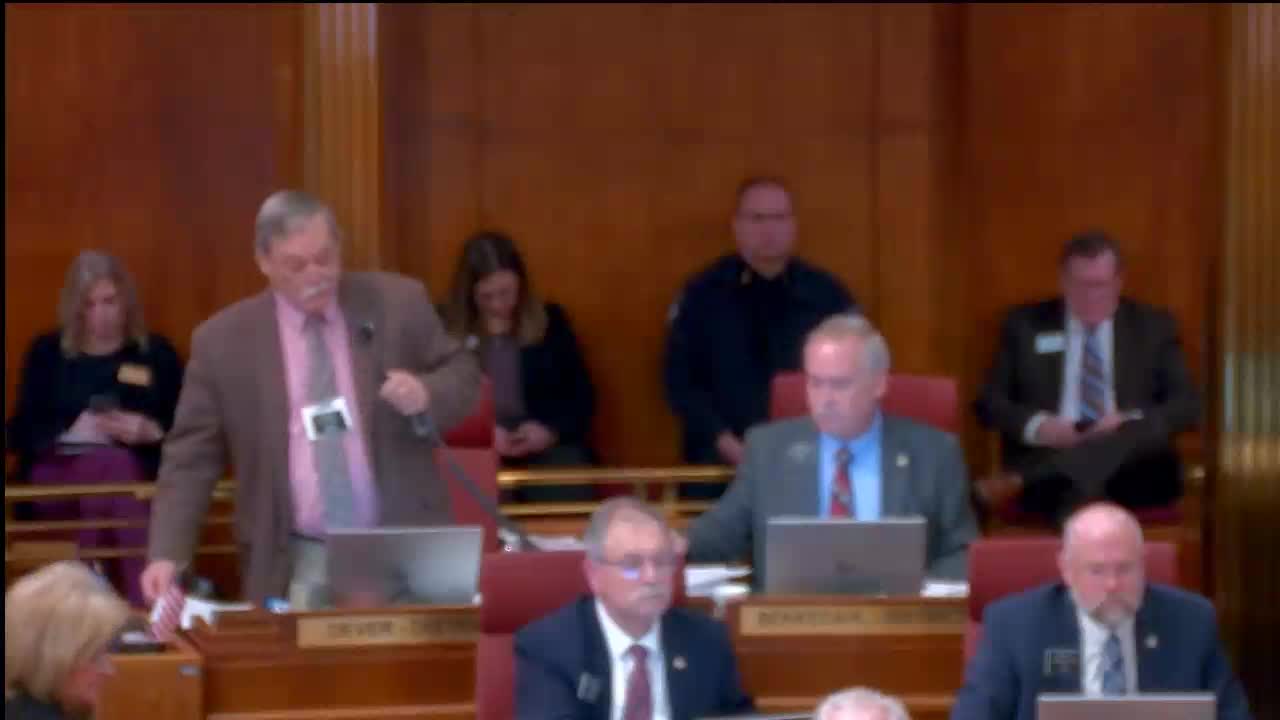Senate passes truth‑in‑sentencing measure after extended debate on transitional facilities, good‑time and penalties
Get AI-powered insights, summaries, and transcripts
Subscribe
Summary
After hours of debate the Senate passed Senate Bill 21‑28, revising eligibility for transitional facilities and release programs, changing good‑time and meritorious conduct calculations, and increasing consecutive minimum penalties for assaulting officers, preventing arrest and felony fleeing; final passage was 28‑18 with one absent.
Senator Peter Bridal, the bill sponsor, told the Senate that Senate Bill 21‑28 would clarify which offenders are eligible for release programs and transitional facilities, tighten the application of good‑time credits, and set minimum consecutive penalties for certain offenses against law enforcement.
"Transitional facilities ... are structurally, operationally, and almost in an almost always distinct from commonly understood correctional facilities," Bridal said, describing the bill's definition of transitional centers and its limits on transfers into those settings. He said the measure preserves rehabilitation programs inside secure facilities while restricting when offenders convicted of violent crimes may live in transitional settings or access community release.
Major provisions in the bill set eligibility for participation in release programs and transitional facilities generally after an offender has served 85% of a sentence (with some statutory exceptions); require objective, reliable assessments before placement in release programs; and require quarterly reporting to the attorney general and legislative counsel on individuals who meet eligibility criteria. The bill also changes how good time and meritorious conduct are awarded: good time may be earned up to 5 days per month but must be earned for time actually served and will be capped at 50% of a sentence; meritorious conduct accrual is reduced from two days per month to one.
Bridal and supporters argued the bill restores legislative control over sentencing and reduces risks posed by offenders in unsecured community settings. "This is what this bill is about," Bridal said, citing cases presented to the committee of offenders who absconded from community placements.
Opponents, including members with corrections and rehabilitation experience, warned the bill could reduce access to programs shown to lower recidivism and increase immediate correctional costs by shifting placements from transitional centers to secure facilities. Senators cited conflicting committee recommendations: the Judiciary Committee gave the bill a due‑pass recommendation while Appropriations reported a do‑not‑pass on fiscal grounds before the Senate vote.
The bill also adds minimum consecutive penalties: a 14‑day minimum consecutive sentence for preventing arrest in certain circumstances and a 30‑day minimum consecutive sentence for assaulting a peace officer, correctional officer or listed emergency personnel. It also clarifies application provisions so most substantive changes apply prospectively to convictions after the bill's effective date.
After debate and an adopted committee amendment that reduced an earlier fiscal estimate, the Senate gave final passage to Senate Bill 21‑28 by a vote of 28 ayes, 18 nays and 1 absent.
